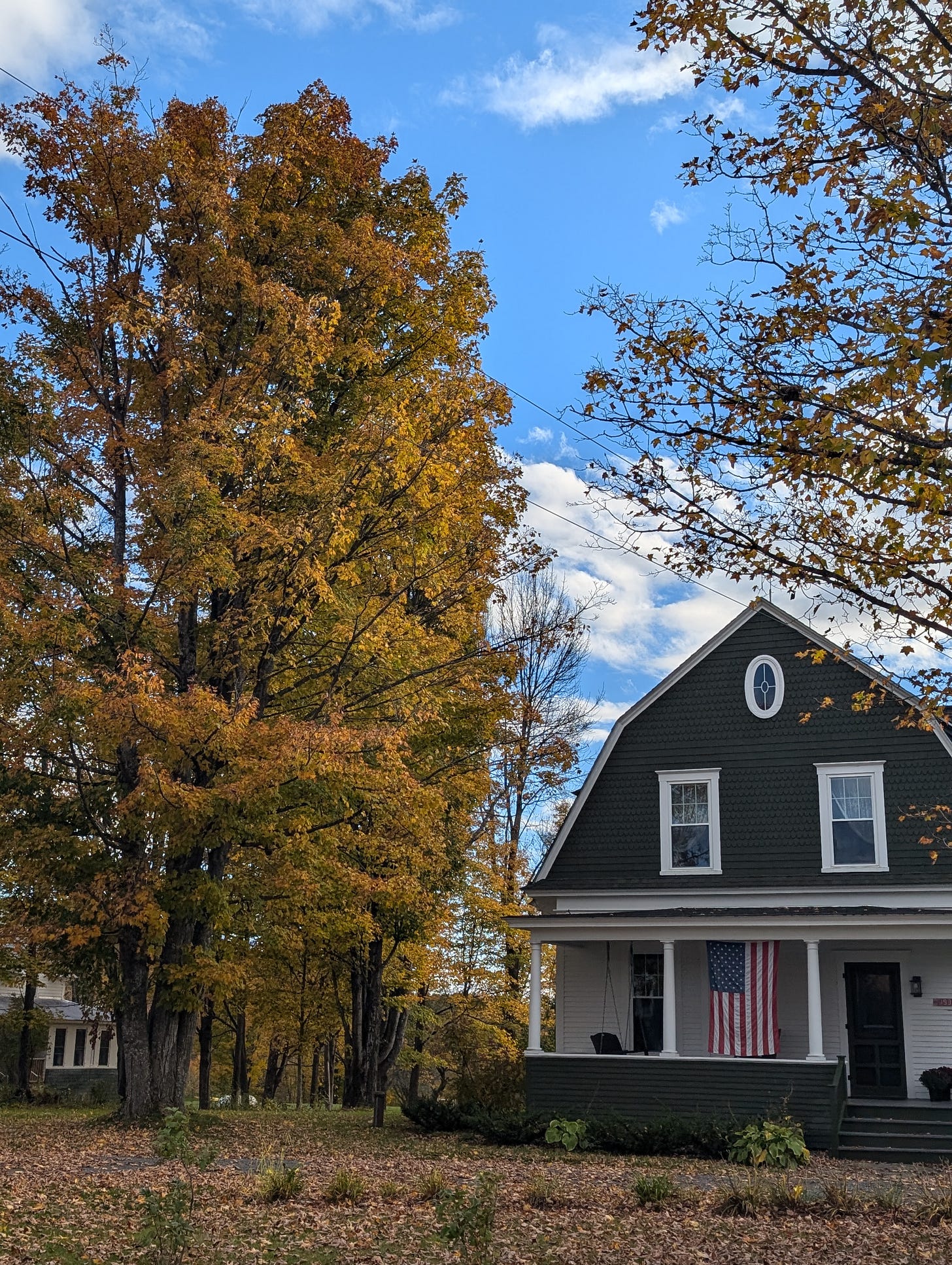As he was setting out on a journey, a man ran up and knelt before him and asked him, “Good Teacher, what must I do to inherit eternal life?”
Jesus said to him, “Why do you call me good? No one is good but God alone. You know the commandments: ‘You shall not murder. You shall not commit adultery. You shall not steal. You shall not bear false witness; You shall not defraud. Honor your father and mother.’”
He said to him, “Teacher, I have kept all these since my youth.”
Jesus, looking at him, loved him and said, “You lack one thing; go, sell what you own, and give the money to the poor, and you will have treasure in heaven; then come, follow me.”
When the man heard this, he was shocked and went away grieving, for he had many possessions.
Then Jesus looked around and said to his disciples, “How hard it will be for those who have wealth to enter the kingdom of God!” And the disciples were perplexed at these words. But Jesus said to them again, “Children, how hard it is to enter the kingdom of God! It is easier for a camel to go through the eye of a needle than for someone who is rich to enter the kingdom of God.”
They were greatly astounded and said to one another, “Then who can be saved?”
Jesus looked at them and said, “For mortals it is impossible, but not for God; for God all things are possible.”
Mark 10:17-27
The so-called Rich Young Man story in our Mark reading is well-known by many. Jesus is approached by this very earnest, young, successful man asking Jesus for a perennial human desire: the key to eternal life, or more crudely, an “immortality key.” Jesus loves him in his confusion and tries to help.
This story’s translation history within the Church has some common errors in at least two directions. One has to do with the tradition of Calvinism and issues raised by sociologist Max Weber. According to Weber, Calvinism’s imbued sense of God’s providence and election gave many Protestants the impression that if you were wealthy, you must be one of the elect and bestowed special favor by God. In this and many other theological lineages in the Church, the temptation follows to read this passage and say, eh, the wealth part doesn’t really matter, or it matters only to this man.
At worst, this has led to some debunked exegetical theories about “the eye of a needle” being the nickname of a gate in Jerusalem, which, unfortunately for our wealth-loving sensibilities, is untrue.1 Absent this, there are still many ways this passage gets read that minimize the general thrust of Jesus’ attitude toward wealth. So I don't want to do that.
But I also don't want to make another mistake and say this passage is only about wealth, a still-materialist reading. No, I think closer to the heart of the matter is that the man thinks of everlasting life as just an extension of this one. Having succeeded at the first one, what’s next to succeed at the next? In his answer, Jesus tries to distinguish between success in the world and success outside of it, the old life and the new life, the fake life and the true life.
Consider the Rich Young Man was probably wealthy partially because he followed the Law, making him a respected, upstanding member of his community, a good religious person, and a reliable businessman. Yet Jesus stuns both him and his disciples by telling him that rather than indicating divine favor, his wealth betrays a love of the false life preventing him from the true one.
But notice that Jesus isn’t mad at him. In fact, he loves him.2 So he speaks the truth in the form of a “spiritual physics” lesson (a metaphor I enjoy borrowing from other preachers). In the “laws of spiritual physics,” Jesus reflects that true life is as spiritually possible for him as it is physically possible for a camel to go through a needle’s eye. Since the man still loves this essentially fake life, this makes him (and many readers) very sad. And it is sad.
Whether it’s ancient Judaism or historical Protestantism or our present moment, wealth is not a sign of living the true life. In Christ, the marks of living the true life are service, humility, and embracing suffering sacrifice for the sake of others. Wealth is not the ultimate sign of God’s favor, but Jesus Christ is God’s special favor, blessing, and election on all of us. Through him, God is inviting all of us into the true life. But we have to say yes to that invitation. And the Rich Young Man can’t.
Dale
Time for a brief story.
A few years ago, I did chaplaincy training in Asheville, North Carolina, at the Charles George VA Medical Center. As a chaplain intern, my job was to make rounds on my wing, meeting with patients to check in with them on their spiritual needs regardless of religious background; praying with them if they wanted it, getting a copy of a sacred text if we had it in stock, and more. Sometimes these were very short conversations, sometimes they went on longer. I’d look up their information on the computer beforehand to learn what they were in for and if they had any religious affiliation, and when I’d return, I’d update their chart with any important notes. Then I’d go back out and repeat it again until the day was done. This was the routine.
For the patients I saw, 70% or more of these mostly white working-class Southern veterans were some kind of Southern Baptist or evangelical Christian. As for me, while I grew up in the area, it was in a mainline denomination, and it had been many years since I lived there, so I wasn’t completely sure how I’d relate. I was also in the midst of my Harvard Divinity education, which imparted a subtle but real inflated (and deeply embarrassing) sense of importance that is hard not to be infected by when you’re there.3 While I had left Unitarianism behind for traditional Christianity, my faith journey still had me in an intellectual kind of post-modern version of belief. So at the start of my chaplain internship, I came in so sure that I would have to try to dumb myself down so that these poor Baptists could just understand me.
But I really didn't understand them, or their faith.
Most of the people I met were Vietnam veterans. Many of them left an impression on me. While many were healthy enough that you couldn’t distinguish much from your average neighbor, many were still struggling with conditions incurred from Vietnam (including what they inflicted on others): both physical and moral injuries, both mental and spiritual issues. So many were wild and wonderful, hilarious and dignified, proud and humble, happy and angry, anti-government as much as patriotic…you know, human.
But one guy I vividly remember was a veteran who I’ll call Dale. Like normal, I went in while he was recovering from a treatment. Dale was laying on his bed, smiling with his hands behind his head. In or out of hospitals, I have rarely met someone as joyful, a presence that makes “impressionable” a more literal word—a spirit who leaves an impression upon your memory. As I began to chat with him, asking him more about his life and where he lived, probing a bit to see if he was comfortable talking about faith or not, curious about what made him tick, I remember the smile he gave as he explained his life: “I just live in my van with my tools, and I drive around fixing stuff for people in my church, and I get my needs taken care of, and that’s my life. And I love it.” There was nothing put-on here; he was so calmly confident as he said it, I could not help but feel the presence of someone who “got it”, whatever “it” was. And I could not help but think that in this man, somewhere beyond the land of abstract, overintellectualized theological abstractions, lived the gospel. For this was a man who was simply in love with the true life. It was as obvious as if he was wearing a bright red suit.
I’ve been thinking about Dale these past few weeks, and I know that wherever his van has taken him, North Carolina is in good hands.
Love, Addiction, and Math
A question I have to ask myself when I consider God’s servant Dale is maybe one we Christians all have to occasionally consider: what do we love more than the true life? I don't mean, “What do you love more than piety? What do you love more than religious self-righteousness? What do you love more than being a spiritual perfectionist?” I mean the true life found in Christ, the Way the Truth, and the Life. What of our sin are we holding on to? What of our falseness are we holding on to? What of us that isn't who we really are in the image of God, who we really are in Christ, who our souls are as carriers of Christ….what do we love more? And what might he say to us in our spiritual disease?
All throughout the gospels, we see Jesus healing all sorts of afflicted people through miracles and exorcisms. We maybe don't think of the Rich Young Man in the same category as those who are crippled and possessed. But maybe Jesus does, for he is in need as well, a spiritual prisoner, a wealth addict. As the commentator William Lane said, his danger is the false sense of security that wealth creates. He has set a trap for himself to be in love with the fake life. He is burdened with the disease of overreliance on material resources and personal power and what is required by the Law. And just like everybody else with more obvious diseases, Jesus loves him, and in loving him, wants him to be healed and unburdened too.
I’m an addict of many little things, and I’ve previously been addicted to many more bigger things. And in the Rich Young Man, I see a subtle rock bottom. No, it’s not as visceral as many others on the streets or drinking coffee in a circle in church basements, but I still see one. Many of my fellow addicts have reached a similar point as he, coming to the endgame of whatever our addiction brought us until we finally said surely there is something better than this. What else is there, Jesus? It is here when many of my fellow addicts have heard Jesus calling them to sobriety or some other freedom from their chains, calling us to say we don’t that, for a truer freedom is there for us that not only does not want us sacrificed at something’s altar, but is in One who has sacrificed for us. But the Rich Young Man isn’t quite there yet yet.
And so to prepare him and us for the table, God teaches these spiritual physics, a spiritual cause and spiritual effect that almost seems obvious in retrospect. If you love a false life, you can’t love a true life. They are exclusive. If we love false ways, we can’t love the true way. So Jesus brings in camels and needles like an algebra book trying to help us visualize this spiritual math problem.
As I was reading this passage, I could not help but feel convicted by its judgment, but also frustrated. “Don’t I know this already? Don’t I already know the spiritual math? Then why am I like him? Did I once know the true life? Have I tasted it before? Have I forgotten?” I bet most reading here have had tastes of it. Most of us have moments of complete selflessness; heck, I know so many people in my life who are consistently selfless. And yet we in our sin, our spiritual amnesia, our flesh, and in our love of the world, at some point or another, we all become the Rich Young Man. Maybe not rich in wealth, but rich in something false that we love more than truth.
Are you thirsty? Are you in love?
The very thing that was in some way born of a reward of following the Law and winning the game of life—the Rich Young Man’s riches—are what hold him back, even as he knows there is more. To quote William Lane again, “The function of the law is complete with this man…the historical task of the law is to bring our satisfaction with this world to an end and to quicken with us a thirst for righteousness in life.” But he hasn’t quite gotten there yet. And when he does, selling everything may be a prerequisite, but selling everything isn’t his salvation—that’s in the dust kicking up behind the Good Teacher’s love.
Let us consider the miraculous feeding of the five thousand for a moment. The point of that story is not just for the sake of, “Wow, look how powerful Jesus is,” or to check out this nice thing he did for some hungry people. To be sure, feeding the poor is part of our Christian call, but it is also part of a greater total call to discipleship. Jesus feeds the poor, heals the afflicted, and frees the addicted in part so that they may then develop a hunger for his bread. Jesus restores those whom the world failed, who have been locked out into a world of pain by lovers of the false life.
But the Rich Young Man has more than enough to satisfy him. He is healthy, wealthy, and wise enough to see Jesus is wise. So why is he thirsty, but not thirsty enough?
I don’t know. But I feel many of us in the Church are in that same boat: thirsty, but not quite thirsty enough. Maybe we thirsted before, but have lost touch with our need now. Maybe we think for two seconds about the cost of the cross and balk.
So I’m grateful Mark includes the disciple’s comments in his memory of rhtier exchange. Because if you’re like me, you’re like one of them, wondering..man, who among us can possibly live up to the high standards Christ sets? Who among us is not caught in their sin? Who among us couldn't have some stones hurled our way?
To this, his comfort is simple but maybe still frustrating: for God, all things are possible. But where does that leave us? What can we do, if it is impossible for us? Does that leave us helpless?
No. Where that may leave us is maybe where the man missed. If he was in love with the fake life, he was also in love with his success, with the Law and what it brought him. But he wasn’t in love with God.
So if there is something that I pray for us, I pray that we may fall back in love with God. This is, I think, a wonderful reason and challenge of being in church each Sunday. We are here to worship God, and in doing so, may we fall back in love with him.
And when fall back in love with God, we may fall back in love with the true life we once tasted. Yes, I do think we’ve tasted it before, and Jesus offers it again and again. Sometimes it takes being in touch with people loving the true life, like Dale. Sometimes it takes the rescue of strangers who showed you God’s love without a single string attached. But if it’s been too long, I pray you may have something that helps you fall back in love with God, and in this love, come to seek what he loves. This is the response of faith that young man tragically missed; even if you can’t see where it’s all heading yet, fall in love with God until you feel the Spirit pulling you somewhere you never thought you could go.
If there is one last equation of spiritual physics I can leave you with, is that Scripture attests to a kind of loving chain reaction. As I wrote about a few weeks ago, James tells us, “Draw near to God and He will draw near to you.” (James 4:8). Adding to this, in John’s gospel we hear that none are drawn near to Jesus without being drawn by the Father (John 6:44). In other words, your small piece of flickering faith has already been sparked by the living God, and it is a gift of God that moving you towards God in the momentum of faith, and whatever small piece of faith you have (and maybe today it’s just a mustard seed) is already an impossible thing, and it will birth more possible impossibilities.
In short: in nothing more than wanting to fall in love with God, you can know that God has already fallen in love with you. His love is already in you.
And so if it seems impossible to love the true life more than our fake lives, through the love of Jesus Christ, it is still somehow possible to fall back in love with the true life and the true God through God and in God all over again.
https://www.cambridge.org/core/journals/new-testament-studies/article/origin-of-the-needles-eye-gate-myth-theophylact-or-anselm/51F6B1FD504C36C42D6201F6D87F83C3
Hat tip to At Home with the Lectionary.
Ironically, for all its prestige, Harvard has earned negative prestige among many in the seminary and divinity school world…and I can’t say they’re wrong.









